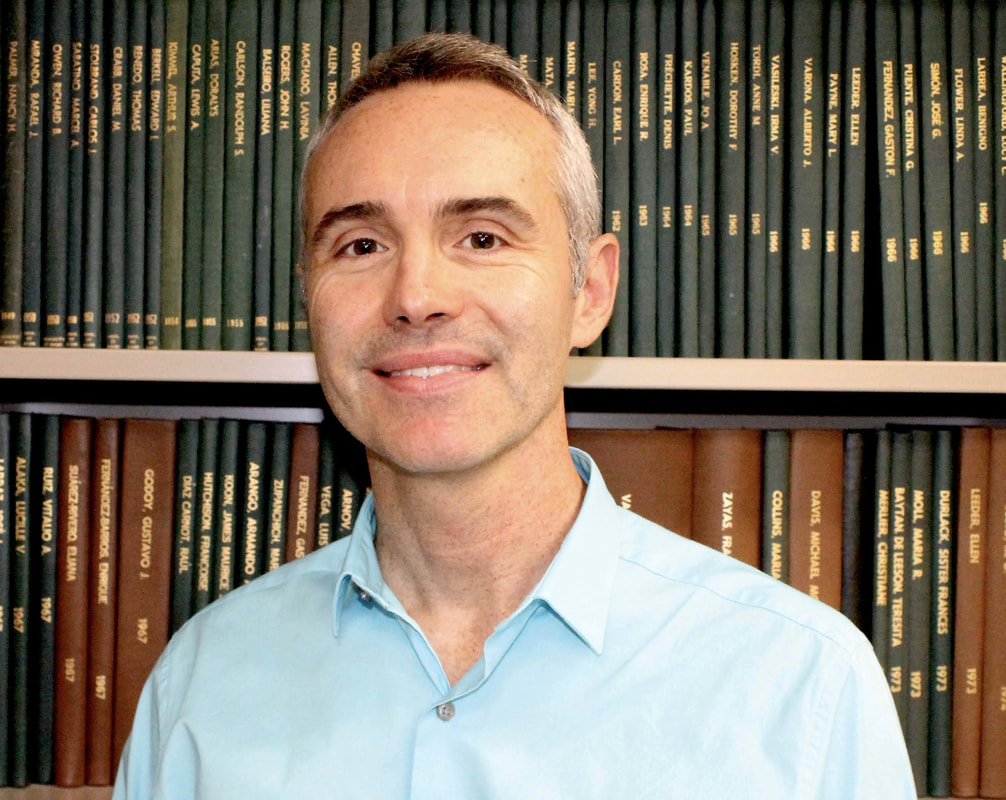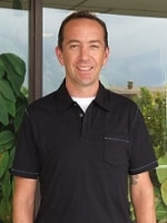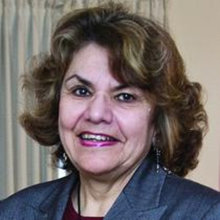|
|
Special Session On Dual Language
The benefits of dual immersion programs for Spanish development
Kimberly J. Potowski, PhD
University of Illinois at Chicago
Abstract: Multiple studies around the U.S. have shown that dual immersion programs that teach in Spanish between 50-90% of the day result in higher levels of both English language learning and academic achievement. But what about students’ Spanish? This study explores in detail the Spanish proficiency of two groups of home Spanish-speaking students in one Chicago public school: those attending the dual immersion program and those in the English program. We will examine their listening, speaking, and reading scores as well as several representative writing samples. All measures show that dual immersion “grows” students’ Spanish to much stronger levels. Given that there is no cost to students’ English nor their academic achievement, two logical conclusions are: (1) All students should have access to dual language programs; (2) Preservice teachers should be able to receive appropriate preparation to teach in them.
Kimberly J. Potowski, PhD
University of Illinois at Chicago
Abstract: Multiple studies around the U.S. have shown that dual immersion programs that teach in Spanish between 50-90% of the day result in higher levels of both English language learning and academic achievement. But what about students’ Spanish? This study explores in detail the Spanish proficiency of two groups of home Spanish-speaking students in one Chicago public school: those attending the dual immersion program and those in the English program. We will examine their listening, speaking, and reading scores as well as several representative writing samples. All measures show that dual immersion “grows” students’ Spanish to much stronger levels. Given that there is no cost to students’ English nor their academic achievement, two logical conclusions are: (1) All students should have access to dual language programs; (2) Preservice teachers should be able to receive appropriate preparation to teach in them.
Workshops
Surviving orthography in the Spanish heritage language classroom
Flavia Belpoliti, PhD Encarna Bermejo, PhD
Texas A&M Commerce and Houston Baptist University
Abstract: Spanish orthography continues to be an underrepresented area in heritage language research and teaching, even though it presents particular challenges for students and instructors. The first part of this workshop seeks to demystify some general assumptions about Spanish heritage learners’ (SHL) orthography by reviewing current research in Latin America and Spain, as well as discussing relevant results from a large study that describes beginner SHL’s management of the Spanish orthographic system. The second part of the workshop will be dedicated to providing participants with a space to bridge the gap between research and instruction. Three approaches for teaching orthography —discovery techniques, focus on form, and digital technologies— will be explored in detail. Participants will work in small groups to create activities based on these approaches, considering the specific needs of students in their heritage and mixed classrooms. The workshop will end with the groups showcasing and sharing their activities and their experience developing them.
_________________________________________________________________________________________________________________________________________________________
Teaching Spanish grammar from a sociolinguistic perspective
Mary Hudgens Henderson, PhD
Winona State University
Sociolinguistics is the study of the relationship between language and society. Sociolinguistics approaches grammar through a descriptive process: what do people say, where do they say it, and to whom do they say it (Fishman 1965)? To this end, teaching Spanish grammar from a Sociolinguistic perspective considers that Standardized Spanish is one dialect of Spanish among many, and the grammar of Standardized Spanish happens to be preferred in certain (academic) contexts. Participants in this interactive session will learn techniques to teach Spanish grammar from a Sociolinguistic viewpoint, that is, viewing Standardized Spanish as an additional dialect that students add to their linguistic repertoire. Contrastive Analysis, Linguistic Inquiry projects, and Switching from one language variety to another are three teaching techniques that can be implemented in your class tomorrow. This approach will revolutionize our grammar teaching, from one of “correcting” to one of “learning and applying when necessary.”
_________________________________________________________________________________________________________________________________________________________
Materials development grounded in the Learning by Design Multiliteracies framework
Gabriela C. Zapata, PhD
Texas A&M University
The purpose of this workshop is to provide theoretical and practical guidance for the development of instructional activities for Spanish Heritage language learners (HLLs) grounded in the tenets of the multiliteracies pedagogy Learning by Design(Kalantzis et al. 2005, 2016). The first part of the workshop will briefly discuss the linguistic and social aspects that characterize many of our HLLs. The next section will present an overview of the framework, including its epistemic moves and concrete examples of how they are incorporated in the classroom. The last part of the workshop will include hands-on group activities in which the participants will be expected to design an outline of an instructional unit for their HLLs based on Learning by Design. Additional pedagogical resources, such as practical ways of finding and presenting information and ideas for multimodal tasks, will also be included in the workshop.
Flavia Belpoliti, PhD Encarna Bermejo, PhD
Texas A&M Commerce and Houston Baptist University
Abstract: Spanish orthography continues to be an underrepresented area in heritage language research and teaching, even though it presents particular challenges for students and instructors. The first part of this workshop seeks to demystify some general assumptions about Spanish heritage learners’ (SHL) orthography by reviewing current research in Latin America and Spain, as well as discussing relevant results from a large study that describes beginner SHL’s management of the Spanish orthographic system. The second part of the workshop will be dedicated to providing participants with a space to bridge the gap between research and instruction. Three approaches for teaching orthography —discovery techniques, focus on form, and digital technologies— will be explored in detail. Participants will work in small groups to create activities based on these approaches, considering the specific needs of students in their heritage and mixed classrooms. The workshop will end with the groups showcasing and sharing their activities and their experience developing them.
_________________________________________________________________________________________________________________________________________________________
Teaching Spanish grammar from a sociolinguistic perspective
Mary Hudgens Henderson, PhD
Winona State University
Sociolinguistics is the study of the relationship between language and society. Sociolinguistics approaches grammar through a descriptive process: what do people say, where do they say it, and to whom do they say it (Fishman 1965)? To this end, teaching Spanish grammar from a Sociolinguistic perspective considers that Standardized Spanish is one dialect of Spanish among many, and the grammar of Standardized Spanish happens to be preferred in certain (academic) contexts. Participants in this interactive session will learn techniques to teach Spanish grammar from a Sociolinguistic viewpoint, that is, viewing Standardized Spanish as an additional dialect that students add to their linguistic repertoire. Contrastive Analysis, Linguistic Inquiry projects, and Switching from one language variety to another are three teaching techniques that can be implemented in your class tomorrow. This approach will revolutionize our grammar teaching, from one of “correcting” to one of “learning and applying when necessary.”
_________________________________________________________________________________________________________________________________________________________
Materials development grounded in the Learning by Design Multiliteracies framework
Gabriela C. Zapata, PhD
Texas A&M University
The purpose of this workshop is to provide theoretical and practical guidance for the development of instructional activities for Spanish Heritage language learners (HLLs) grounded in the tenets of the multiliteracies pedagogy Learning by Design(Kalantzis et al. 2005, 2016). The first part of the workshop will briefly discuss the linguistic and social aspects that characterize many of our HLLs. The next section will present an overview of the framework, including its epistemic moves and concrete examples of how they are incorporated in the classroom. The last part of the workshop will include hands-on group activities in which the participants will be expected to design an outline of an instructional unit for their HLLs based on Learning by Design. Additional pedagogical resources, such as practical ways of finding and presenting information and ideas for multimodal tasks, will also be included in the workshop.



